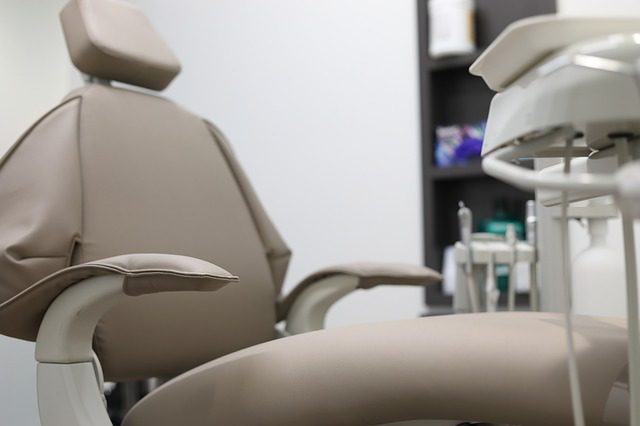Maxillofacial surgery is a unique branch of oral surgery in that it combines dentistry with surgical skill and specific knowledge about the structures of the face, mouth and neck. Maxillofacial surgeons treat trauma and diseases affecting the head and neck. This could involve dental bone grafting to replace a missing portion of the jawbone, a total mouth reconstruction surgery to fix abnormal bites, or even treating and fixing TMJ disorders. There are a lot of examples of maxillofacial dental surgery, and it takes an oral surgeon who specializes in maxillofacial surgery to perform them.
Generally, your dentist will recommend an oral surgeon to you, though you’re free to see any maxillofacial surgeon you wish. But the process generally starts in a dentist office. They will recommend you for oral surgery treatment that they can’t do themselves. It’s not possible to be an expert at everything; that’s why there are specialists like oral surgeons and maxillofacial surgeons. These dental surgery professionals have had further schooling, which allows them to specialize in these types of operations. As much as we wish our friendly dental doctor down the street could help us with maxillofacial surgery, these are operations that are best left to specialists. The intricacy of the oral surgery you require will determine which type of specialist your dentist recommends.
Education Required of Maxillofacial Surgeons
Maxillofacial surgeons have completed an undergraduate degree as well as a doctoral study in dentistry. Then they must complete four to six years of advanced surgical training. This is what ultimately differentiates an oral doctor with experience in maxillofacial surgery from a regular dentist. It just comes down to advanced schooling for that specific subject. They learn a wide variety of treatment options for patients who have experienced facial trauma, dental misalignment, temporomandibular joint (TMJ) disorder, and other oral health issues that require surgery. It’s a lot of schooling and hard work, but it equips students to be some of the best maxillofacial surgeons out there for the patients who need them. Upon graduation, most of them get to work immediately in the field, cultivating more real life experiences in helping patients with bone grafting around the jaw and mouth and severe facial trauma.
Maxillofacial surgeons are also certified to administer all forms of sedation dentistry, including local to general anesthesia as well as nitrous oxide, oral conscious, and IV sedation.
Issues Treated by an Oral Surgeon
There are a number of issues an oral or maxillofacial surgeon may treat. These can include:
Impacted Wisdom Teeth
Wisdom teeth often emerge from the gum line without enough room from the surrounding teeth to grow. This can cause sore gums and infections in your gum tissue. If not removed, impacted wisdom teeth can also cause permanent damage to nearby teeth, gums, and bone. This can result in the formation of cysts or tumors which can further damage the jawbone. It’s not a fun thing to experience, but thankfully a maxillofacial surgeon with experience in impacted wisdom teeth can help.
An oral surgeon can remove your wisdom teeth to avoid these problems — ideally in your early 20s, though you can get them out at any age. There just tend to be more complications the older you are. The younger you are, the more malleable your jawbone is, allowing an experienced oral surgeon to get in there and work their magic a lot easier. When you get to be an adult, your jawbone is much more rigid, and it isn’t quite as easy to maneuver around. It’s still no problem for a maxillofacial surgeon who’s been practicing for years, but the procedure takes longer, and there’s also a longer recovery time. And if your wisdom teeth are impacted, you may need a dental bone graft for wisdom teeth, which definitely requires a specialist.
Tooth & Bone Loss
When you need a tooth extracted, an oral surgeon can remove it — especially if it’s in a difficult to reach place or there are other complications such as a partially shattered tooth. And if you are missing any teeth, your best option for tooth replacement are dental implants. A maxillofacial surgeon is trained at setting dental implants, including same day dental implants so you can have the entire dental implant surgery completed on a single day. Artificial tooth implants require surgeons to work directly with the jawbone, which of course falls into the hands of a maxillofacial surgeon, in particular. The titanium post of the implant gets set directly into the jawbone. Over the course of the next few months, the implant integrates with the jawbone in a process called osseointegration.
Not all patients are ideal candidates for dental implants. Deterioration of the jawbone, common in patients who are missing teeth, may make it difficult for the mouth to accept dental implants. If a tooth or multiple teeth have been missing from the mouth for a while, the jawbone that lies below wher the tooth was begins to break down. It’s sort of like an atrophied muscle in that sense. In this case, dental bone grafting surgery can strengthen your jawbone by taking bone from other places of the body and inserting it into your jaw. Plenty of maxillofacial surgeons specialize in oral bone grafting and can help set your jawbone right before figuring out a solution for your missing teeth.
Facial Trauma/Injury
Facial trauma is no joke. It happens fast and generally needs immediate attention, depending on the severity. If you’ve suffered facial trauma such as a fractured or dislocated jaw, an oral surgeon can see you quickly to reset the jawbone. Maxillofacial surgeons routinely see people who have suffered from facial trauma, whether it’s the result of an injury, abuse, or an accident. Maxillofacial surgeons who work on facial trauma have all the necessary tools and know-hows of the human facial anatomy to restore facial function and get you smiling again.
Sleep Apnea
Do you suffer from sleep apnea? An oral surgeon may be your solution to sleep soundly without snoring or the need for a sleep machine. People with sleep apnea often suffer from a poorly positioned jaw or they have a large amount of soft tissue that interferes with their airways. We can correct these problems through oral surgery. Typically, a maxillofacial surgeon who works on sleep apnea patients shortens the soft palate in a process that removes small part of the uvula in what is known as a uvulopalatopharyngoplasty (UPP). We absolutely promise we didn’t just make that term up. There are a few other procedures that a maxillofacial specialist can try for sleep apnea, but the UPP surgery is one of the more common ones.
Problems with Your Jaw/Joint
Your jaw is connected to your skull by the temporomandibular joint (TMJ). Sometimes problems with this joint can result in pain in your jaw, jaw-popping, stiffness, and headaches. Fortunately, these problems can be often treated through medication and physical therapy. But sometimes oral surgery is required for more advanced cases.
Sometimes your jawbone isn’t aligned properly, resulting in an overbite. Your dentist may recommend you to a maxillofacial surgeon for orthognathic surgery. There are quite a few different kinds of TMJ surgeries as well. Some of them aren’t invasive at all, and others do require the experience and know-how of a maxillofacial surgeon dedicated to their work. Which one is right for you is usually dependent on the severity of the TMJ and the symptoms you’re experiencing.
Ill Fitting Dentures
For people wearing dentures for the first time, an oral surgeon can treat any jawbone irregularities so the dentures will fit better. As you wear dentures, your jawbone will deteriorate, causing your dentures to fit poorly. It’s a double-edged sword. Because there aren’t actual teeth—or high-end dental implants—rooted in the jaw that are stimulating the jawbone, it still breaks down over time. An oral surgeon can add a dental bone graft to help support your jawbone so your dentures fit better. For denture-wearers, most oral health surgeons and dentists recommend visiting at least twice a year. This allows them to keep a close eye on your health and make adjustments to the fit of the dentures as needed. No one wants loose dentures that pop out of their mouth left and right.
The mouth and jaw are an extremely intricate system that is interlinked with other bodily systems, like the sinuses, respiratory and digestive systems. So if your dentist recommends you to an oral surgeon or maxillofacial surgeon, don’t be worried, it just means they want the best care for you. Complex issues require specialized knowledge that falls outside of the dentistry practice.








